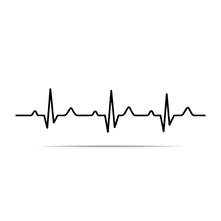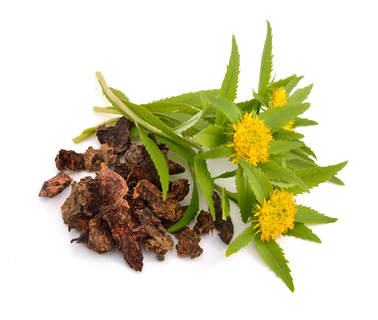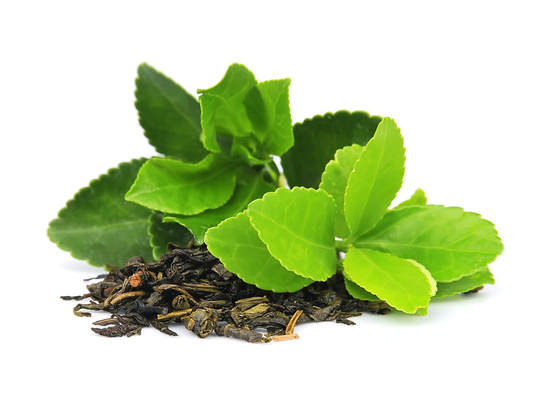|
Awareness is the first step to battling chronic stress. Have you been living your life at the same frantic pace for so long that it feels normal for you?
Are your struggling with chronic stress?
These are all symptoms of chronic stress.
If you're already completely aware that you're experiencing chronic stress, then you can skip ahead to how to cope with it. But if you want to delve deeper, establish what your hormonal imbalances are, or establish a baseline for your heart rate variability, read this part.
Chronic stress can be measured using several methods including testing key stress hormone levels or testing your heart rate variability. Both of these methods can be done at home or by your doctor.
A stress hormone test can be ordered through your doctor or through a test ordered online from a company like Everly Well labs. This link will get you ten percent off a stress and sleep test kit that tests for four hormones: cortisol, cortisone, melatonin, and creatinine. When you are chronically stressed these hormones will be out of balance. It can be helpful to know which hormones are affected in your situation.

Another test you can do at home is a heart rate variability test. Heart rate variability (HRV) is highly indicative of your overall health and resistance to stress. HRV is a measure of the variation in the time between heartbeats, which is controlled by the primitive part of your nervous system, the autonomic nervous system (ANS). It regulates our heart rate, blood pressure, breathing, and digestion.
The ANS is divided into the sympathetic and the parasympathetic nervous system, also know as the fight or flight mechanism and the relaxation response. They respond to both positive and negative stimulous, but if there is too much negative stimuli, the fight or flight response can shift into overdrive. This would measure in a low HRV, so there wouldn’t be much variability. Back when I taught childbirth classes, I spent quite a bit of time on teaching relaxation and reducing any kind of stress when giving birth. If the fight or flight response is strong, the baby won’t come! HRV is also what the birth practitioners are looking for when they monitor the baby's heart rate. Heart rate variability can increase with lifestyle changes such as incorporating mindfulness, meditation, more sleep, and more physical activity. The most accurate way to test heart rate variability is by an electrocardiogram at your doctor’s. Second best is using a chest strap heart monitor, downloading a free app to analyze the data. Coping with unavoidable stress
Avoiding all stress usually isn’t practical. Definitely do what you can, but the way you cope with stress is important. The following are three areas for supporting your body to deal with stress more easily.
Food
Certain foods make stress worse. Junk food, sugar, caffeine, and alcohol all contribute to stress. The irony is that they’re the very foods you might crave when you’re feeling stress.
Caffeine and other stimulants can stress the body and increase the response to stressful situations. If you’re already anxious, caffeine can make you more anxious. Sugar can make you feel better in the short term, but causes you to crash a short while later. Alcohol is also stressful to the body as it has to work even harder to remove the toxins.
Anything that causes inflammation, such as processed foods or foods you may have a sensitivity to, should also be avoided during times of stress. For more information on food sensitivities, click here. When your body is stressed it releases histamines which can make your response to allergies or intolerances much worse. It’s also important to manage blood sugar levels when stress is high. The levels can become unstable when stress is high because your body raises blood sugar levels so that it has an immediate energy source. Think of the energy you’d need if you were escaping danger. Chronic stress can lead to hypoglycemia (low blood sugar), which can lead to overeating. To stabilize your blood sugar, avoid foods high on the glycemic index, and eat a wide variety of whole fruits and vegetables…and a lot of them! This will also help you replenish vitamin stores in the body, which can become depleted when stressed. 
Eating plenty of fresh fruits and vegetables helps support the body during stressful times by providing the nutrients it needs. Sometimes it can help to focus on what you should eat, instead of what you shouldn't. Also, keeping to regular mealtimes, helps the body to anticipate mealtimes, which prevents further stress on the body.
When your body is confused about about mealtimes, and doesn’t know when the next meal is coming, it releases cortisol to help keep blood sugar stable. Eating every few hours keeps blood sugar levels from plummeting and also helps prevent binge eating, or unintentional eating!
What about herbs and supplements?
Herbs and supplements can be useful in supporting your body through times of stress so that your adrenals don't have to do all the work. Your adrenal glands sit on top of your kidneys and are meant to help protect you when you're in immediate danger. When they go into action, they release adrenaline and cortisol. They also ramp up your blood sugar (think running from a tiger), increases your blood pressure so you don't go into shock, and increases your heart rate so that your muscles are supplied with oxygen. Then when it's all over, the adrenals release insulin to clear out the leftover sugar in your bloodstream. They also activate your immune system so that you don't get an infection. This is all very helpful when you actually are in immediate danger or experiencing short term stress. The problem comes when you experience chronic stress. Your adrenals are overactive, and if it goes on too long you experience adrenal fatigue. 
Adaptogens are natural herbs that can be used to reduce fatigue and build resilience by supporting the adrenals. The adrenal system manages the body’s response to stress on a hormonal level. Chronic stress can tax the adrenal system.
Adaptogens are key for combatting stress. They help to normalize adrenal function, they calm and nourish the adrenals, and they support processes controlled by the adrenals. Their action tends to be subtle, with the benefits building up over months of being taken regularly.
*Please check with your doctor before trying any of these adaptogens, and generally avoid them during pregnancy, although they are generally considered safe for breastfeeding mothers. Some of the most popular herbs, adaptogens, and supplements are: rhodiola, shatavari, ashwagandha, eleuthero, holy basil, reishi mushrooms, chamomile, green tea, glutathione, probiotics and fermented foods. The benefits tend to overlap although some are more well known for specific benefits. You can also take them in combination, in fact there are many combination products available over the counter for adrenal fatigue. 
Rhodiola
Caution: Avoid rhodiola if you have bipolar depression with manic behavior.
Ashwaganda

Eleuthero, also know as Siberian ginseng
Shatavari (my favorite!)

Holy Basil (Tulsi)
Reishi mushrooms

Other herbs and supplements that are helpful for stress reduction are:
Chamomile
Green tea
Glutathione
Probiotics and fermented foods
All of these adaptogens, herbs, and supplements are terrific for coping with stress and helping the body come back from chronic stress, but don't forget to look at your lifestyle and see where you can make changes to reduce stress at the source.
Exercise!
Exercise is a terrific way to reduce stress. However, if you are feeling a lot of stress, it's best to skip the high intensity workouts and be careful about overdoing it. Vigourous or intense exercise is actually interpreted as stress by the body and can actually make the situation worse. Moderation is the key if you are stressed. A mellow run, walk, or swim is a great choice for cardiovascular exercise. Read more about exercise and establishing an exercise routine here. 
Of course, optimal results come from calming practices such as tai chi, yoga, and qigong. Just remember that as above, a vigorous flow type of yoga class won’t be as beneficial when you’re stressed as either a slower flow class, an Iyengar style yoga class or even a restorative class can be especially beneficial. Click here for more on yoga and 15 minutes of yoga that you can do anywhere.
One more very effective way of reducing stress is Mindfulness Based Stress Reduction.
Jon Kabat Zinn started this program at the University of Massachusetts Medical Center almost forty years ago. Since then, the program has spread and studies have proven it a very effective way of dealing with stress, pain, anxiety, depression, and illness.
Download the free introductory worksheet below! How is the level of stress in your life? What is your best way of coping? Share in the comments below!
|
Click below to join my FREE Facebook Group-
Women's Wellness Circle: Create Your Extraordinary Life AuthorHi, I’m Crystal! If you'd like to access my Farmer's Market Friday posts from 2018, click here!
Categories
All
|




 RSS Feed
RSS Feed